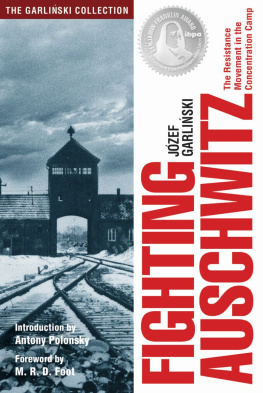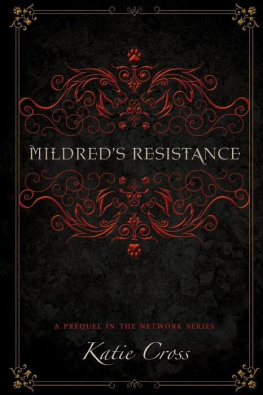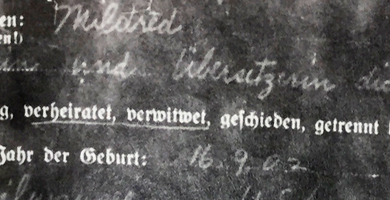
Copyright 2021 by Rebecca Donner
Cover design by Allison Saltzman
Cover images courtesy of the author
Author photograph by Kathy Ryan
Cover 2021 Hachette Book Group, Inc.
Hachette Book Group supports the right to free expression and the value of copyright. The purpose of copyright is to encourage writers and artists to produce the creative works that enrich our culture.
The scanning, uploading, and distribution of this book without permission is a theft of the authors intellectual property. If you would like permission to use material from the book (other than for review purposes), please contact permissions@hbgusa.com. Thank you for your support of the authors rights.
Little, Brown and Company
Hachette Book Group
1290 Avenue of the Americas, New York, NY 10104
littlebrown.com
twitter.com/littlebrown
facebook.com/littlebrownandcompany
First ebook edition: August 2021
Little, Brown and Company is a division of Hachette Book Group, Inc. The Little, Brown name and logo are trademarks of Hachette Book Group, Inc.
The publisher is not responsible for websites (or their content) that are not owned by the publisher.
Excerpt from Ravensbruck: Life and Death in Hitlers Concentration Camp for Women by Sarah Helm, copyright 2015 by Sarah Helm. Used by permission of Nan A. Talese, an imprint of the Knopf Doubleday Publishing Group, a division of Penguin Random House LLC. All rights reserved. Excerpt from The Notebooks of Thomas Wolfe by Richard S. Kennedy and Paschal Reeves, copyright 1970 by the University of North Carolina Press. Used by permission of the publisher. www.uncpress.org. Excerpt from The House Prison at Gestapo Headquarters in Berlin: Terror and Resistance is reprinted with the kind permission of Stiftung Topographie des Terrors. Excerpts from Two Thousand and Ten Days of Hitler, copyright 1940 by Patsy Ziemer. Reprinted with the kind permission of Barbara Eadie Myer of the Estate of Patsy Ziemer.
The Hachette Speakers Bureau provides a wide range of authors for speaking events. To find out more, go to hachettespeakersbureau.com or call (866) 376-6591.
Illustration credits begin .
ISBN 978-0-316-56172-3
E3-20210611-JV-NF-ORI
Sunset Terrace
Burnout
For Mildred and Don
This is a work of nonfiction.
Any words that appear between quotation marks are from a letter, a postcard, a memoir, a diary, a handwritten note, a declassified intelligence report, or other document that I discovered in an archive.
In books, newspaper articles, and archival documents, Mildred appears variously as Mildred Harnack, Mildred Fish-Harnack, and Mildred Harnack-Fish. The confusion stems from Mildred herself. In the United States, she called herself Mildred Fish-Harnack; in Germany, she called herself Mildred Harnack-Fish. For the sake of simplicity, I refer to her in these pages as Mildred Harnack.
Mildred was known to many as a woman who chose her words carefully. Her utterances were sparse, a German woman remembered, often with a surprising clarity. She listened quietly, an American woman recalled. When she did speak, she commanded attention. If you flip to the end of the book youll see the sources for these quotations. Throughout this book I use endnotes, not footnotes, to cite my sources.
This book follows two narratives: one chronicles Mildred, and one chronicles a boy named Don. In Dons chapters, I use italics instead of quotation marks to indicate the thoughts and conversations he remembered having during that time. During the Second World War, at the age of eleven, Don became Mildreds courier.
The title of this book comes from a poem by Johann Wolfgang von Goethe that Mildred translated in her prison cell. There is some debate about whether an s can be discerned at the end of the word trouble in Mildreds original handwritten translation. We must bear in mind that translation is an art, not a science; Mildreds translations were often looser, and less literal, than the academic renditions of Goethe poems that we may encounter. We must also bear in mind that Mildred wrote with a pencil stub in a damp prison cell.
Harald Poelchau remembered seeing Mildred bent over the book of Goethe poems, the pencil stub in her hand, when he visited her prison cell. Poelchau worked as a chaplain of the prison and was a member of an underground resistance group founded in the rural town of Kreisau in Silesia. It is because of Poelchau that we have Mildreds translations of Goethe. On February 16, 1943, he slipped the book into the folds of his robe and smuggled it out.
Questionnaire
Pltzensee Prison, Berlin
February 16, 1943
| Last name | Harnack |
| First name | Mildred |
| Date of birth | 9/16/02 |
| Place of birth | Milwaukee, Wisconsin, USA |
| Do you have assets? How much and what do they include? | 8.47 (?) in my pocket
1 ship ticket United States Lines $127 (paid in Reichsmark) in my purse
some money in Deutsche Bank
Apartment furnishings, especially in the two front rooms, Woyrschstr. 16, Berlin, with two Oriental carpets; a light and a dark one with uneven stars and colors |
| Why are you punished now? Do you admit committing the crime you are charged with? In which circumstances and for what reason did you commit the crime? | Accomplice in treason |
H ER AIM WAS SELF-ERASURE . T HE more invisible she was, the better her chances of survival. In her journal she noted what she ate, read, thought. The first was uncontroversial. The second and third were not. For this reason, she hid the journal. When she suspected the Gestapo was closing in on her, she destroyed it. Burned it, most likely.
She was at the harrowing center of the German resistance, but she wasnt German, nor was she Polish or French. She was Americanconspicuously so. The men she recruited acquired code names: Armless, Beamer, Worker. She operated under no code name. Still, she was elusive. The nature of her work required absolute secrecy. She didnt dare tell her family, who were scattered across the towns and dairy farms of the Midwest. They remained bewildered that she, at twenty-six, had jumped aboard a steamer ship and crossed the Atlantic, leaving behind everyone she loved.
Her family is my family. Three generations separate us. She preferred anonymity, so I will whisper her name: Mildred Harnack.
In 1932, she held her first clandestine meeting in her apartmenta small band of political activists that grew into the largest underground resistance group in Berlin by the end of the decade. During the Second World War, her group collaborated with a Soviet espionage network that conspired to defeat Hitler, employing agents and operatives in Paris, Geneva, Brussels, and Berlin. In the fall of 1942, the Gestapo pounced. She was thrown in prison. So were her coconspirators. During a hastily convened trial at the Reichskriegsgerichtthe Reich Court-Martiala prosecutor whod earned the moniker Hitlers Bloodhound hammered them with questions.













